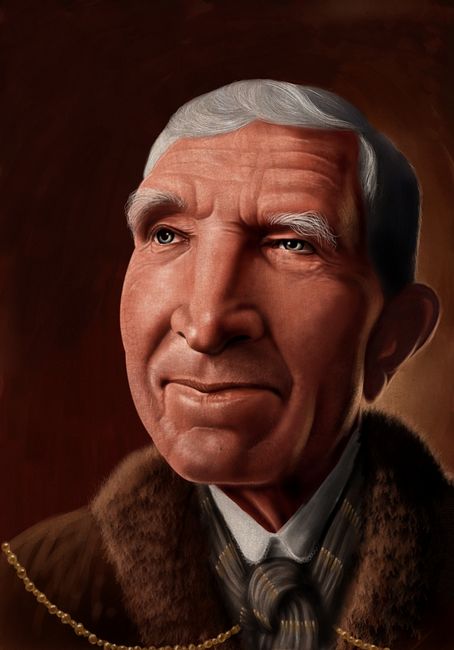
NEW YORK TIMES: John Updike, the kaleidoscopically gifted writer whose quartet of Rabbit Angstrom novels highlighted so vast and protean a body of fiction, verse, essays and criticism as to earn him comparisons with Henry James and Edmund Wilson among American men of letters, died today at a hospice outside Boston. He was 76 and lived in Beverly Farms, Mass. The cause was cancer, according to a statement by Alfred A. Knopf, his publisher.
Where James and Wilson focused largely on elite Americans in a European context, Mr. Updike wrote of ordinary citizens in small-town and urban settings. His best-known protagonist, Harry (Rabbit) Angstrom, first appears as a former high-school basketball star trapped in a loveless marriage and a sales job he hates. Through the four novels whose titles bear his nickname — “Rabbit, Run,” “Rabbit Redux,” “Rabbit Is Rich” and “Rabbit at Rest” — the author traces the sad life of this undistinguished middle-American against the background of the last half-century’s major events. “My subject is the American Protestant small town middle class,” Mr. Updike told Jane Howard in a 1966 interview for Life magazine. “I like middles,” he continued. “It is in middles that extremes clash, where ambiguity restlessly rules.”
citizens in small-town and urban settings. His best-known protagonist, Harry (Rabbit) Angstrom, first appears as a former high-school basketball star trapped in a loveless marriage and a sales job he hates. Through the four novels whose titles bear his nickname — “Rabbit, Run,” “Rabbit Redux,” “Rabbit Is Rich” and “Rabbit at Rest” — the author traces the sad life of this undistinguished middle-American against the background of the last half-century’s major events. “My subject is the American Protestant small town middle class,” Mr. Updike told Jane Howard in a 1966 interview for Life magazine. “I like middles,” he continued. “It is in middles that extremes clash, where ambiguity restlessly rules.”
From his earliest short stories, set in the fictional town of Olinger, Pa., which he once described as “a square mile of middle-class homes physically distinguished by a bend in the central avenue that compels some side streets to deviate from the grid,” Mr. Updike sought the clash of extremes in everyday dramas of marriage, sex and divorce. The only wealth he bestowed on his subjects lay in the richness of his descriptive language, the detailed fineness of which won him comparisons with painters like Vermeer and Andrew Wyeth. This detail was often so rich that it inspired two schools of thought on Mr. Updike’s fiction — those who responded to his descriptive prose as to a kind of poetry, a sensuous engagement with the world, and those who argued that he wasted beautiful language on nothing. MORE

MARDOUVILLE: I like John Updike, sporadically. I’m reading him again right now (‘Trust me’, followed by ‘Licks of Love’, now on ‘Bech, a Book’). He’s prolific enough that I can spend a lifetime, I hope, dipping in and out of his books, enjoying and then becoming a little queasy with the sexy whiffs and gusts he emits. Right now I like him a lot.
It struck me (whilst reading ‘Licks of Love’ which features the above imagine Jane), that nobody writes so eloquently or gloriously on middle age as Updike does. His prose is as a luxurious reading experience as Nabokov- it really is- but more well rounded than the Zemblan master. Updike’s heroines are not slips of things, Adas or Lolitas but rather the aging, broad-hipped Charlotte Hazes.
He admires women wonderfully, on a good day and I do get a kick out of that male gaze, a man thinking about a woman, spilling the observations of his private mind. Updike, for me, is at his best when filtering women through his male gaze. That’s all he can do. He does it brilliantly in small doses. Give me an occasional Updikian smorgasbord, that’s what I want! Updike, you’re such a sexpot, I think you’re rather wonderful. MORE
